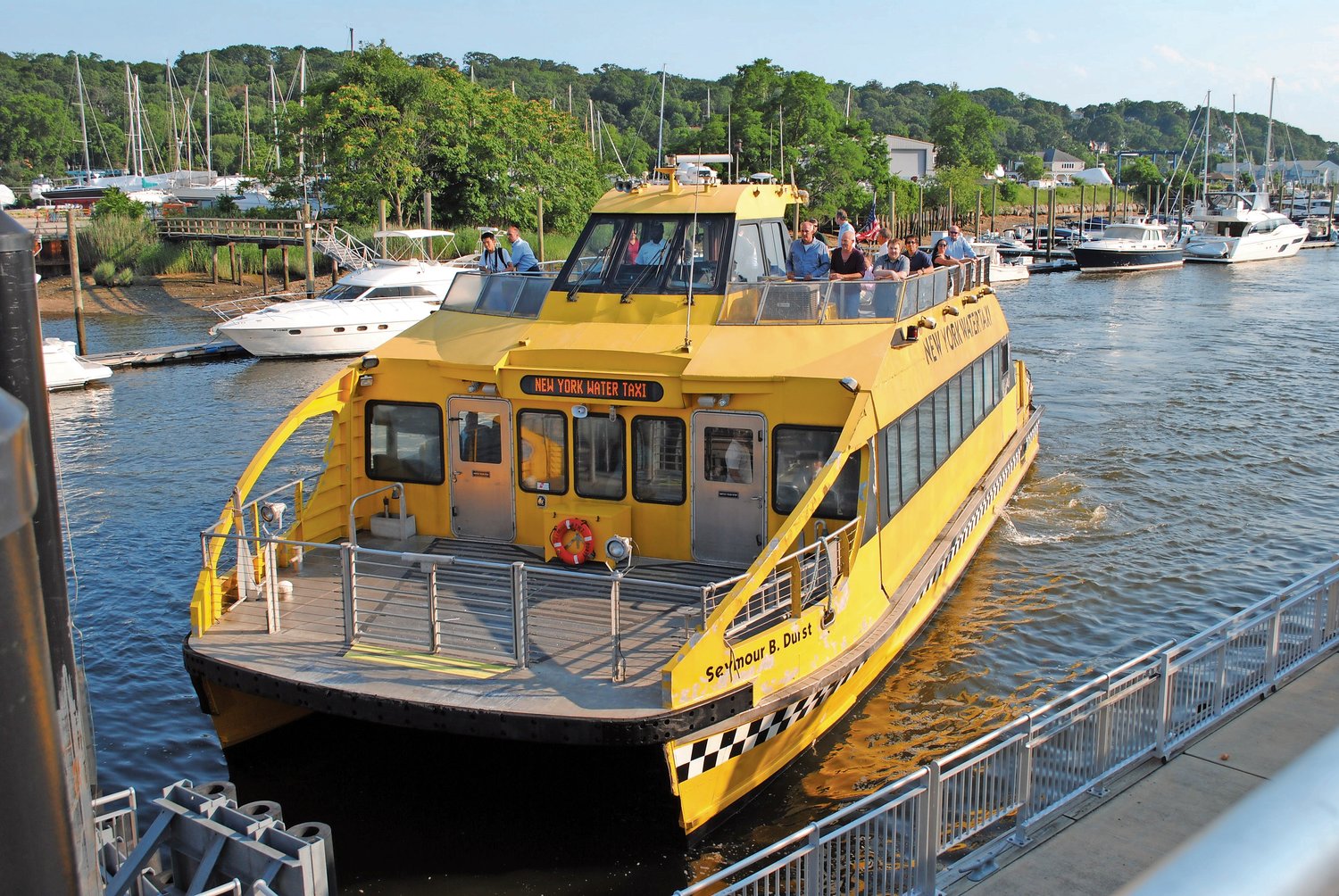Glen Cove ferry deadline is extended
City’s timeline for work approved
The government-implemented deadline for Glen Cove to get its ferry service up and running passed on Jan. 1, creating some concerns about what might happen next. According to Mayor Tim Tenke, there is no reason for concern, because the city has been granted an extension by the Federal Highway Administration. The new deadline for the ferry to become operational is May 22, 2020.
Tenke said that the city had submitted an action plan to the FHWA, but the processing was delayed when the federal government shut down. This, Tenke said, played a significant role in the failure to meet the Jan. 1 deadline. After the shutdown ended on Jan. 25, the city contacted the FHWA, which confirmed that the plan had been approved on Jan. 28, extending the deadline for the ferry.
The action plan included a series of milestones set on a timeline. It was created by the city and RXR Realty, which is working on the development at Garvies Point, the site of the ferry terminal.
The plan’s milestones, which expand the ferry service, span a 10- to 15-year period, with a completion date of 2035. Factors that will be considered include how many trips to Manhattan and back the ferry could make in a day, other places of interest it might visit and fueling arrangements.
Tenke said he was optimistic about getting the ferry going by the new deadline. “That’s the goal that we set forth, and I would love to see it operational at that point,” he said. “We’re doing everything we can to make sure that happens.”
The deadline extension gives the city more time to put $16.6 million in grant funding — given to Glen Cove by the FHWA in 2003 — to use in the implementation of the ferry service. According to Michael Levy, former chairman of the Glen Cove Taxpayers Association, had the deadline not been pushed back, the responsibility for the repayment of the $16.6 million might have fallen to residents.
“It looks to me like you’re talking about $600 or $700 for every man, woman and child in Glen Cove to pay back that $16.6 million,” Levy said before the deadline extension, adding later, “Unless RXR is able to sell apartments to a lot of wealthy people, that ferry is going nowhere.”
Larry Penner, who worked for the U.S. Department of Transportation for 31 years, said he was chiefly concerned with how long it was taking to get the ferry service operational. He said that since the FHWA gave the city the grant in 2003, 17 years is far too long to wait for a working ferry.
“Based on my previous 31 years’ experience in management of Federal Transit Administration capital grants for similar ferry capital projects,” Penner said, “it should have taken several years to complete construction of any ferry terminal. Three years later, ferry service should have been up and running by 2006.”
David Garten, senior vice president of infrastructure investment and emerging submarkets at RXR Realty, said that the company fully supported the city’s efforts to make the ferry operational. “There is no doubt that efficient, clean and fast new forms of transit connectivity will expand opportunities for the city by better connecting area residents to jobs and amenities in New York City and more effectively linking area businesses to an expanded workforce and a bigger customer base,” Garten wrote in a statement. “We look forward to working with the city to turn this service into a reality.”
The first step in the action plan is the release of a request for proposals for a ferry operator, which the city hopes to issue by April. An operator must be hired by Sept. 15.
The city has not yet decided on the price of ferry rides, but Tenke said he had a rough idea. “We have to make sure that it’s within the range of reason . . .,” he said, “certainly competitive with the LIRR.”

 47.0°,
Mostly Cloudy
47.0°,
Mostly Cloudy 




